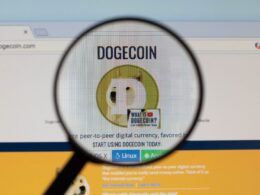DoubleZero, a new networking layer pitched as “faster than the internet,” is moving toward mainnet with growing Solana participation and an upcoming token launch in September. The project has attracted real testnet traction — the original coverage reports nearly 12.57% of staked SOL operating on DoubleZero’s testnet — and the team says mainnet will roll out with a much-expanded fiber mesh and a token distribution.
How it works: DoubleZero isn’t a smart-contract chain in the usual sense. As its founder describes it, the project builds a high-performance, global fiber mesh by allowing independent fiber owners to contribute capacity. That shared infrastructure aims to deliver lower latency and much higher throughput than typical public‑internet routes, enabling blockchains and validators to exchange data more quickly.
Why Solana first? The team is prioritizing Solana because of its unusually high transaction-per-second profile combined with a relatively large node count — a combination that makes communication a bottleneck as throughput grows. DoubleZero’s argument is simple: if validators can use a faster, higher‑capacity network, protocol designers could safely raise throughput limits without forcing centralization.
Stake and capacity: DoubleZero operates a stake pool intended to help validators on its testnet; the group mentioned about 3 million SOL in that pool (from a ~500 million SOL supply). On the infrastructure side, the network plans to expand from roughly eight fiber links today to more than 50 at mainnet, with many links scaling from 10 Gbps to 200 Gbps.
Centralization and fallback: The team acknowledges centralization and censorship concerns. Their mitigations include a multi‑contributor mesh (currently nine independent contributors) so traffic can route around misbehaving nodes, plus an explicit fallback to the public internet — at the cost of lower throughput if DoubleZero is unavailable.
Risks to note: DoubleZero introduces protocol and economic risks — new networking layers, validator incentives and a token sale all carry technical, security and market risks. Users and validators should evaluate tradeoffs around centralization, censorship resistance and token economics before participating.
Source: CoinDesk. Read the original coverage for full details.

